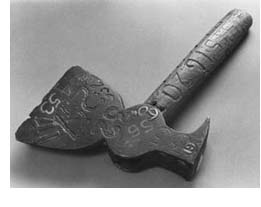Wisdom and Rest
The following is a copy of the Thomas Question email devotional. You can subscribe to the email edition from our website and tune into our podcast.
I’d like to change the format of these email devotionals, if I might. Since this is supposed to be a quick-pass weekly thought, I’d like to shorten them and make them more specific. As always, I’m open to feedback. I Hope you enjoy…
 I’ve pulled something out of one of my journal entries from last September. We’d just begun the process of settling into our new home after our cross Canada move and I was feeling inundated with the actual “lurking just beneath the surface” work of starting a church. Feeling tugged in a thousand directions while only able to move in one or two, I found myself trying to balance input and output to make sure my life wasn’t driven into the ground. These words are coming back to me as I start to feel some of the same pressures right now. Here’s what I wrote:
I’ve pulled something out of one of my journal entries from last September. We’d just begun the process of settling into our new home after our cross Canada move and I was feeling inundated with the actual “lurking just beneath the surface” work of starting a church. Feeling tugged in a thousand directions while only able to move in one or two, I found myself trying to balance input and output to make sure my life wasn’t driven into the ground. These words are coming back to me as I start to feel some of the same pressures right now. Here’s what I wrote:
“Self care and self serving are two very different things though they can often look exactly the same. Self serving is it’s own end. Self care is a strategic investment so as to be able to make a contribution, again, in turn. Remember, Jesus… “withdrew from there in a boat to a secluded place by Himself…” (Matthew 14:13)”
I think it’s wise to consider something about your personality: which excess are you more prone to? Time on or time off? Giving or resting? Input or output? Caring for yourself in the context of a higher purpose is just another form of serving others. It’s different phases of the same activity, and a truly wise person knows when and how to move between them. Such a person cares for themselves so that they can care for others.
 Ecclesiastes talks about how a dull ax places requires more skill. So by extension – why not sharpen it? It takes greater skill to extract the same output from a life that is gradually wearing down (so by extension… why not sharpen that?). However, pampering yourself for the sake of how it feels is an equally dysfunctional situation. So: over use is a dull ax because one never takes the time to sharpen it. The other extreme is an over-sharp ax because one has never actually used it.
Ecclesiastes talks about how a dull ax places requires more skill. So by extension – why not sharpen it? It takes greater skill to extract the same output from a life that is gradually wearing down (so by extension… why not sharpen that?). However, pampering yourself for the sake of how it feels is an equally dysfunctional situation. So: over use is a dull ax because one never takes the time to sharpen it. The other extreme is an over-sharp ax because one has never actually used it.
Which are you?
We’re probing this and related issues in “A Guide to the Satisfied Life” on Sundays. I hope to see you there, and I hope you bring someone with you.
CSW
I’d like to change the format of these email devotionals, if I might. Since this is supposed to be a quick-pass weekly thought, I’d like to shorten them and make them more specific. As always, I’m open to feedback. I Hope you enjoy…
 I’ve pulled something out of one of my journal entries from last September. We’d just begun the process of settling into our new home after our cross Canada move and I was feeling inundated with the actual “lurking just beneath the surface” work of starting a church. Feeling tugged in a thousand directions while only able to move in one or two, I found myself trying to balance input and output to make sure my life wasn’t driven into the ground. These words are coming back to me as I start to feel some of the same pressures right now. Here’s what I wrote:
I’ve pulled something out of one of my journal entries from last September. We’d just begun the process of settling into our new home after our cross Canada move and I was feeling inundated with the actual “lurking just beneath the surface” work of starting a church. Feeling tugged in a thousand directions while only able to move in one or two, I found myself trying to balance input and output to make sure my life wasn’t driven into the ground. These words are coming back to me as I start to feel some of the same pressures right now. Here’s what I wrote:“Self care and self serving are two very different things though they can often look exactly the same. Self serving is it’s own end. Self care is a strategic investment so as to be able to make a contribution, again, in turn. Remember, Jesus… “withdrew from there in a boat to a secluded place by Himself…” (Matthew 14:13)”
I think it’s wise to consider something about your personality: which excess are you more prone to? Time on or time off? Giving or resting? Input or output? Caring for yourself in the context of a higher purpose is just another form of serving others. It’s different phases of the same activity, and a truly wise person knows when and how to move between them. Such a person cares for themselves so that they can care for others.
 Ecclesiastes talks about how a dull ax places requires more skill. So by extension – why not sharpen it? It takes greater skill to extract the same output from a life that is gradually wearing down (so by extension… why not sharpen that?). However, pampering yourself for the sake of how it feels is an equally dysfunctional situation. So: over use is a dull ax because one never takes the time to sharpen it. The other extreme is an over-sharp ax because one has never actually used it.
Ecclesiastes talks about how a dull ax places requires more skill. So by extension – why not sharpen it? It takes greater skill to extract the same output from a life that is gradually wearing down (so by extension… why not sharpen that?). However, pampering yourself for the sake of how it feels is an equally dysfunctional situation. So: over use is a dull ax because one never takes the time to sharpen it. The other extreme is an over-sharp ax because one has never actually used it.Which are you?
We’re probing this and related issues in “A Guide to the Satisfied Life” on Sundays. I hope to see you there, and I hope you bring someone with you.
CSW
LAST SUNDAY
“Losing yourself in someone else’s story” as a first step to the satisfied life. After all, a need met and a need forgotten both feel exactly the same. But one is much easier to achieve than the other. You can listen through our podcast. You can listen on our podcast or visit our website.
THIS SUNDAY
Grappling with uncertainty, a case for faith and a snapshot of marriage.
THE HIDDEN PART OF EACH SUNDAY
Beneath the service and behind the scenes, every Sunday, there is a close knit team of 4 or 5 people who make the church possible. They grow closer by working together, sharing a coffee and no small amount of laughter as they set up and tear down. Don’t just go to the church – be the church. Email us at info@askthequestion.ca to join a growing community of leaders who’ve found the joy of serving.
DON'T FORGET
Tell someone about the Thomas Question, our podcast or the website. You never know.






